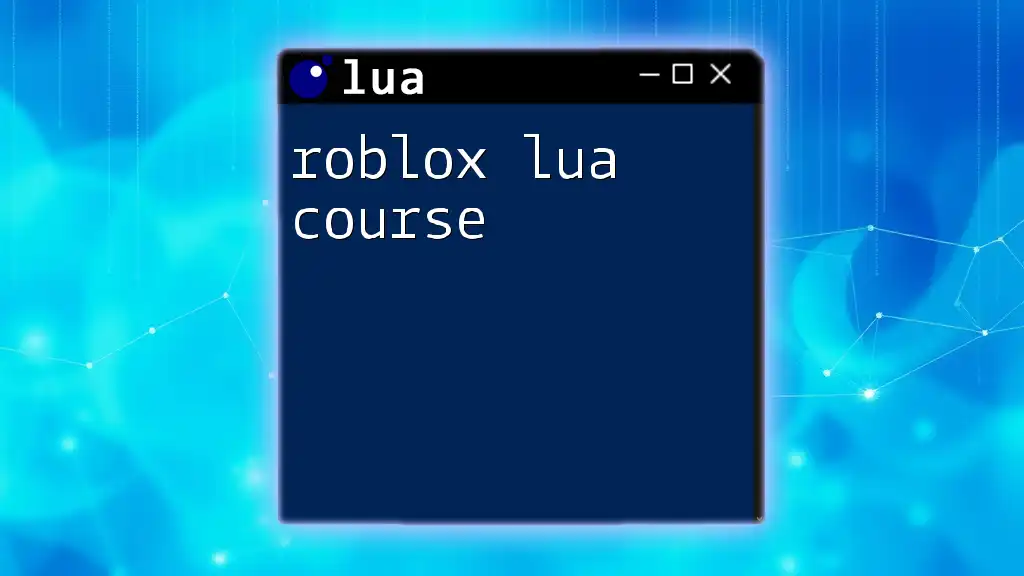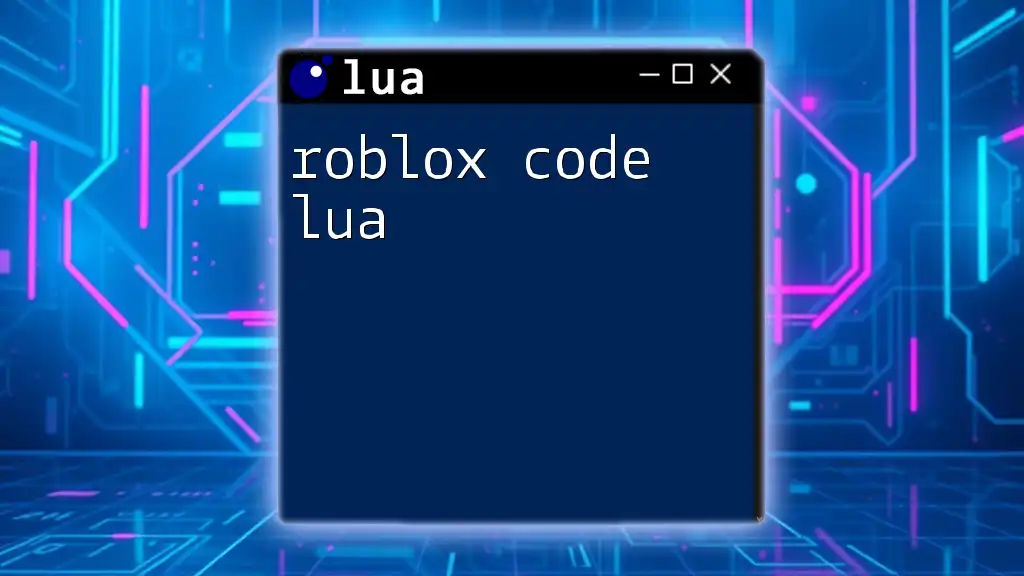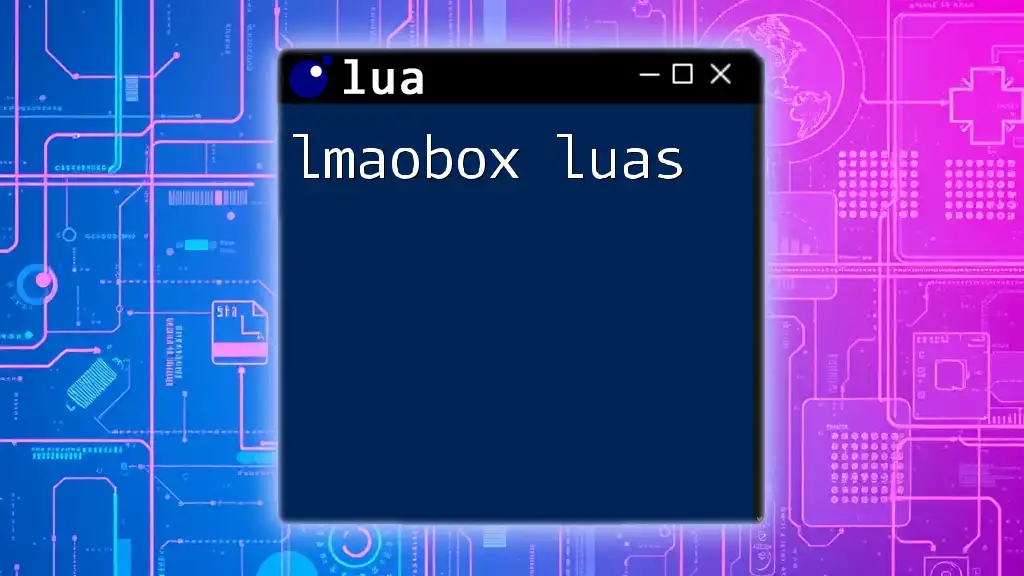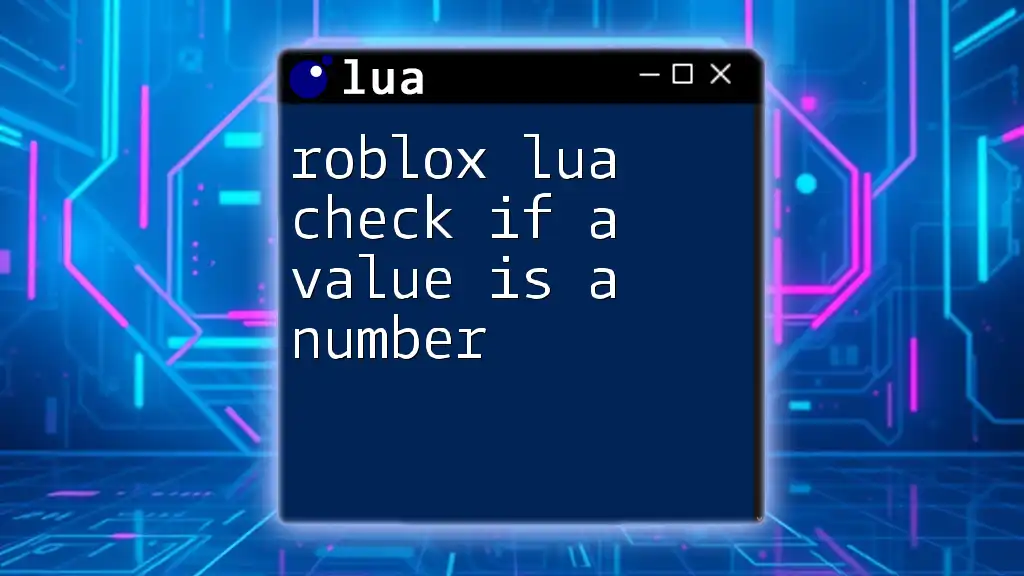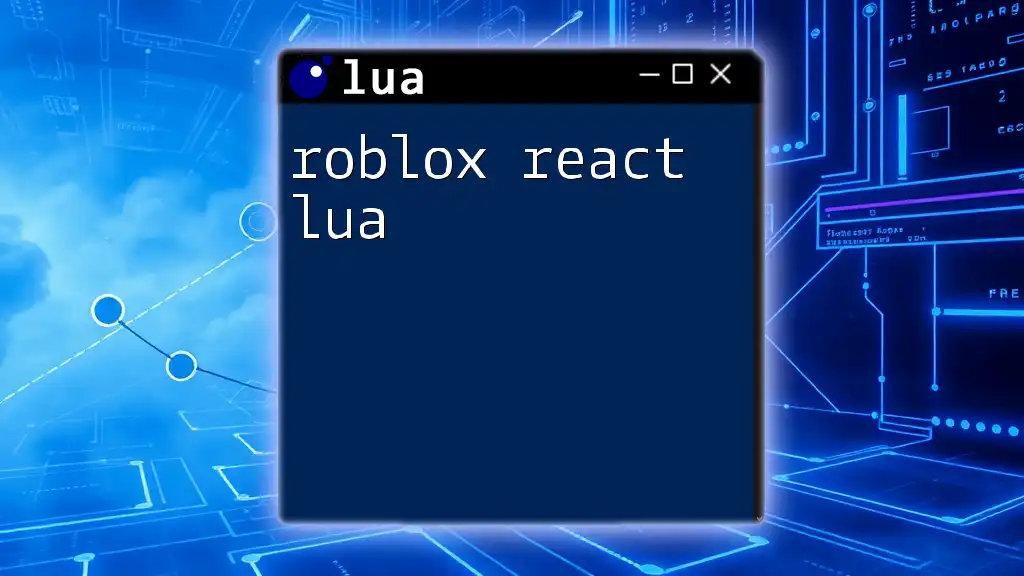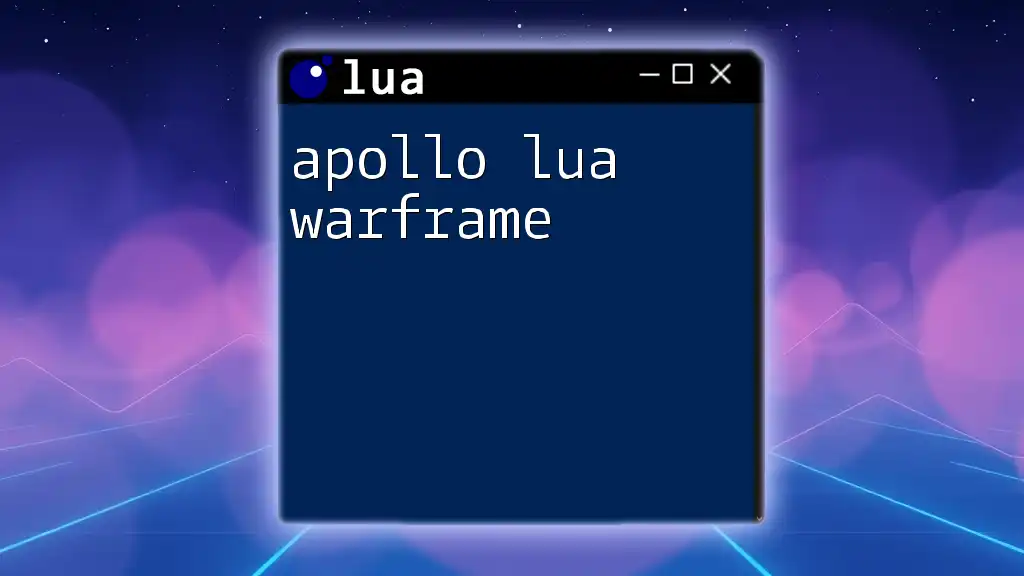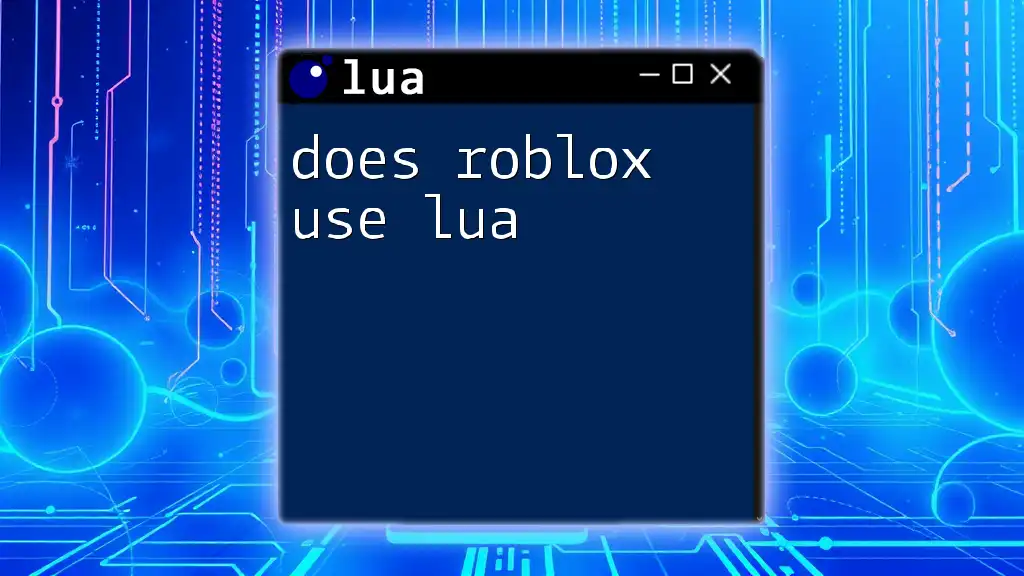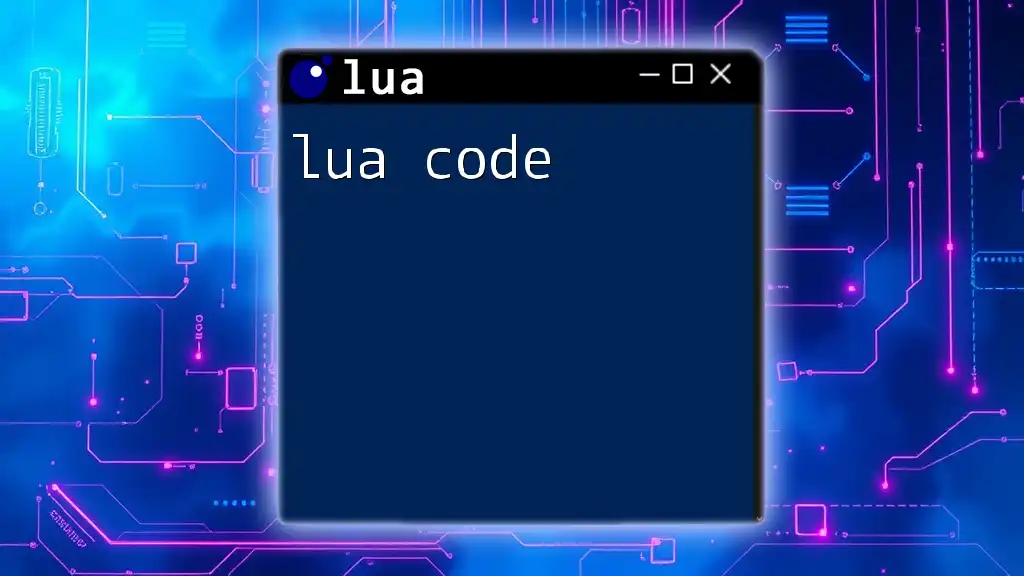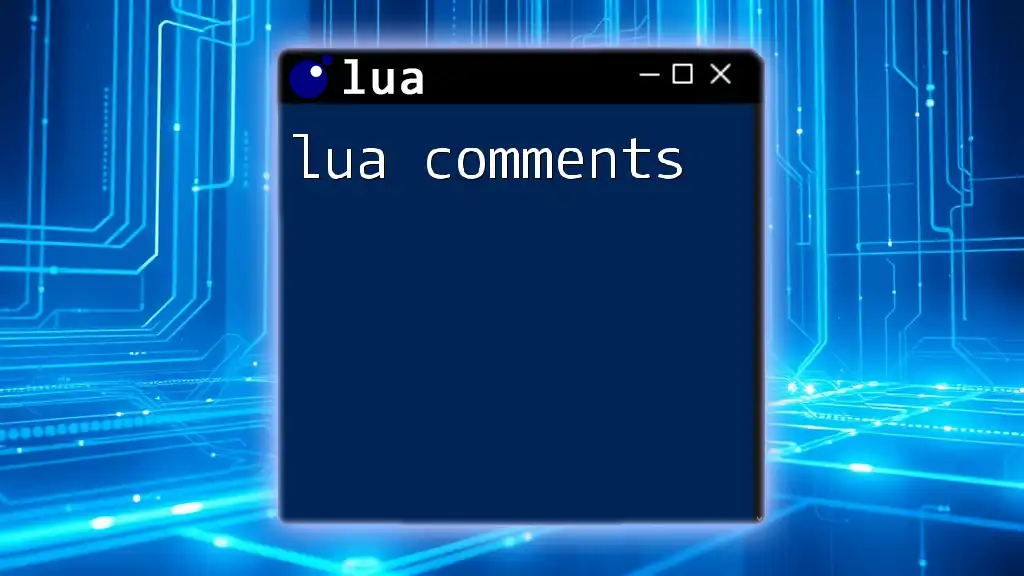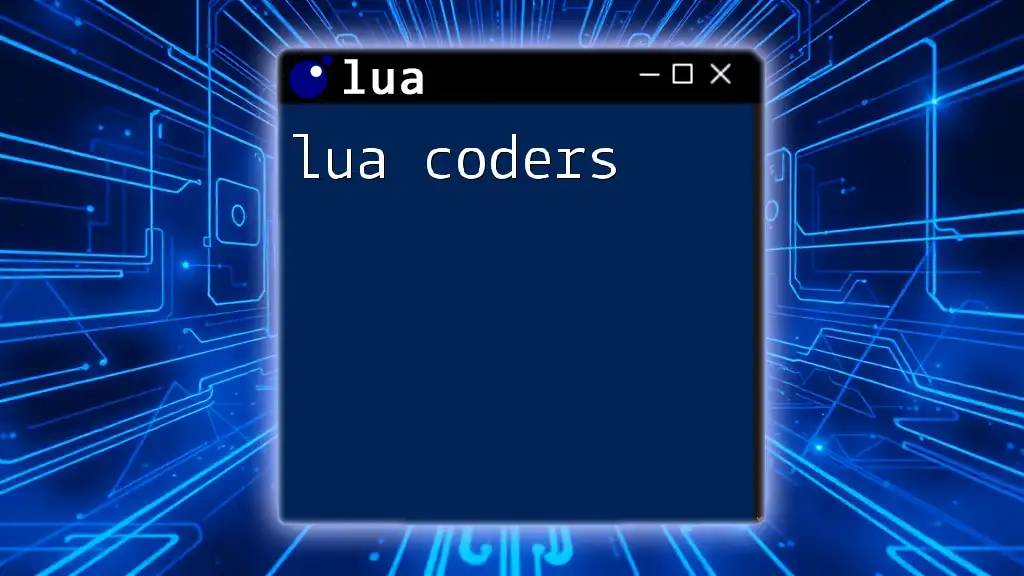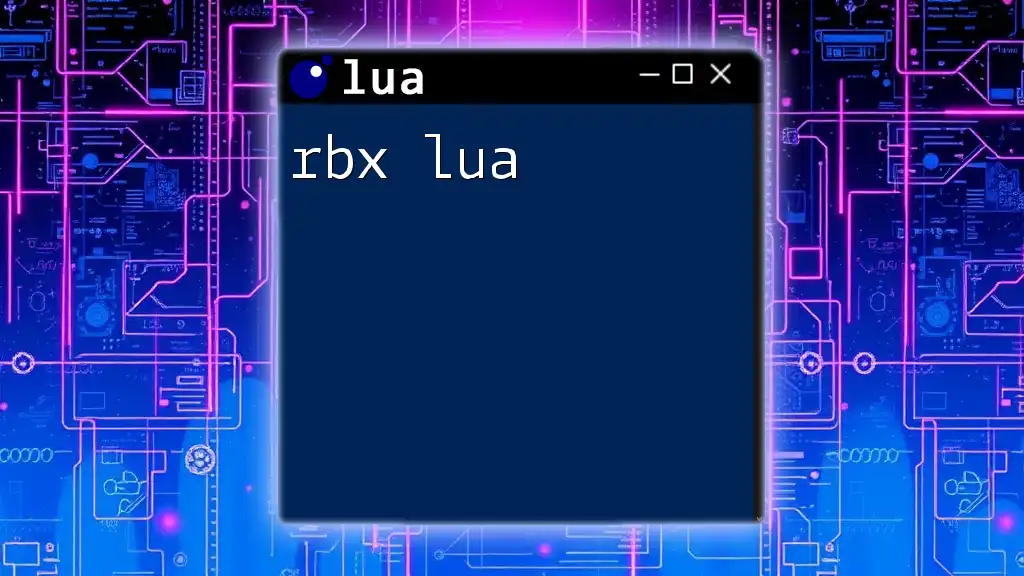Our "Roblox Lua Course" empowers learners to master Lua scripting through concise lessons and practical examples, enabling them to create engaging experiences on the Roblox platform.
Here’s a simple code snippet to get started with creating a part in Roblox:
local part = Instance.new("Part")
part.Size = Vector3.new(4, 1, 2)
part.Position = Vector3.new(0, 10, 0)
part.Parent = game.Workspace
Understanding Lua in Roblox
What is Lua?
Lua is a lightweight, high-level programming language designed for embedded use in applications. Its simplicity and flexibility have made it a popular choice for game development, especially within platforms like Roblox. Lua allows developers to create scripts quickly and easily, focusing on the logic and gameplay experience without getting bogged down in complex syntax.
Why Lua for Roblox?
Roblox utilizes Lua for scripting because of its user-friendly nature. Here are several advantages of using Lua in your Roblox games:
- Ease of Learning: Lua’s syntax is straightforward, making it accessible even for beginners.
- Performance: Lua is designed to be fast, allowing for real-time game interactions without significant lag.
- Community and Resources: The extensive community around Lua and Roblox means there are abundant resources and support available for developers.
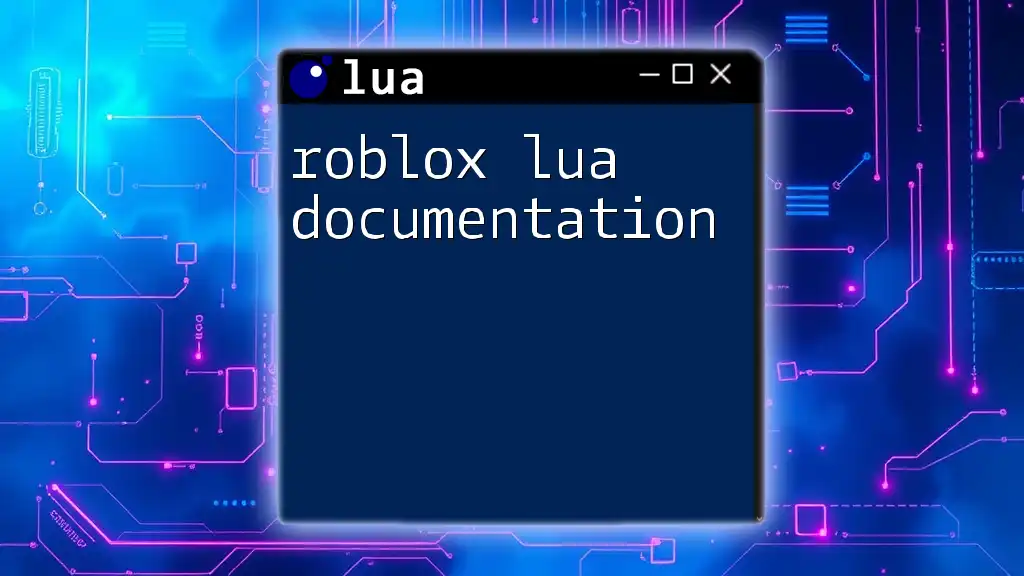
Getting Started with Roblox Studio
Introduction to Roblox Studio
Roblox Studio is the official development environment used to create games on the Roblox platform. It offers various tools for designing, building, and scripting games, all in one cohesive interface. Understanding how to navigate this tool is critical for any aspiring Roblox developer.
Installing Roblox Studio
To get started with your Roblox Lua course, you’ll first need to install Roblox Studio. Follow these simple steps:
- Go to the Roblox website.
- Create an account or log in if you already have one.
- Click on “Start Creating” which will lead you to the download link for Roblox Studio.
- Follow the on-screen instructions to install it on your system.
Make sure your system meets the necessary requirements to avoid any issues during installation.
Creating Your First Game
Once Roblox Studio is set up, you can create your first game. Here’s a simple walkthrough:
- Open Roblox Studio and select a new project.
- Choose a template (e.g., Baseplate, Obby).
- Start adding objects, terrain, and models to your game.
An essential part of this is scripting with Lua. Here's how you can use a short script to change the color of a part in the game:
local part = Instance.new("Part") -- creates a new part
part.Size = Vector3.new(4, 1, 2) -- sets the size of the part
part.Color = Color3.new(1, 0, 0) -- sets the color to red
part.Parent = workspace -- adds the part to the workspace
With this script, you’ve created a red part in your game. This will give you a hands-on feel for Lua scripting in Roblox.
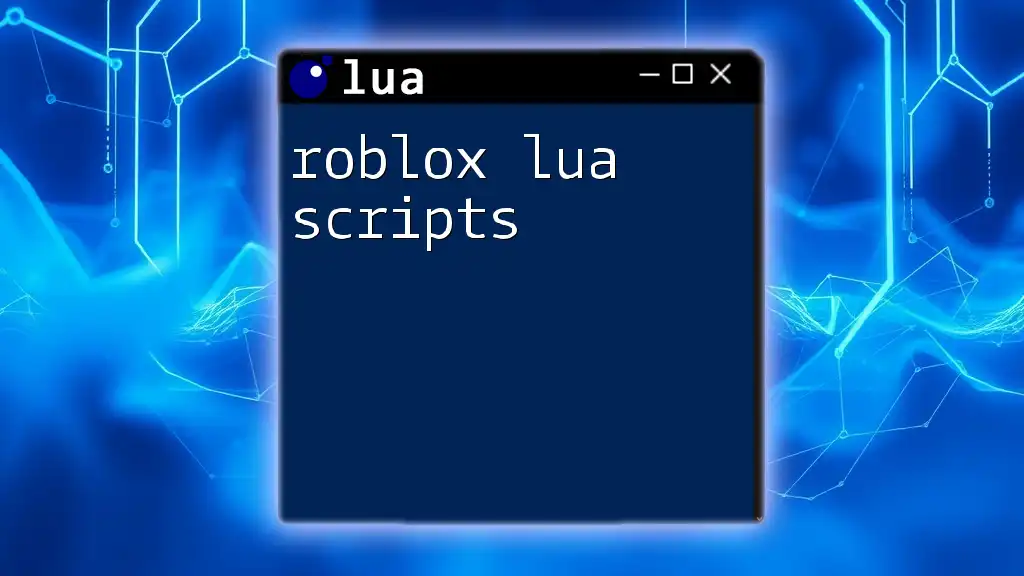
Basic Lua Scripting Concepts
Variables and Data Types
In Lua, variables are used to store data. They are fundamental for scripting, allowing you to manipulate game elements dynamically. Here’s an example of defining variables:
local playerName = "Player1" -- string data type
local playerScore = 100 -- number data type
local playerItems = {"Sword", "Shield", "Potion"} -- table data type
Understanding these data types is critical as they form the backbone of your game logic.
Control Structures
Conditional Statements
Conditional statements enable your script to make decisions. Using `if`, `else`, and `elseif`, you can create dynamic gameplay experiences. Here's a basic example:
local playerHealth = 50
if playerHealth > 75 then
print("Player is healthy")
elseif playerHealth > 30 then
print("Player is in danger")
else
print("Player is critical!")
end
This script checks the player's health and prints a message based on the value.
Loops
Loops allow for repeated execution of a block of code. There are several kinds of loops in Lua, including `for`, `while`, and `repeat`. Here’s a simple `for` loop example:
for i = 1, 5 do
print("This is loop iteration " .. i)
end
This will print the iteration number five times, demonstrating how loops can help automate repetitive tasks.
Functions
Functions are blocks of code designed to perform specific tasks. They enhance code reusability and organization. Here’s how to define and call a function in Lua:
function greetPlayer(playerName)
print("Welcome to the game, " .. playerName .. "!")
end
greetPlayer("Player1")
This example will greet the player every time the function is called.
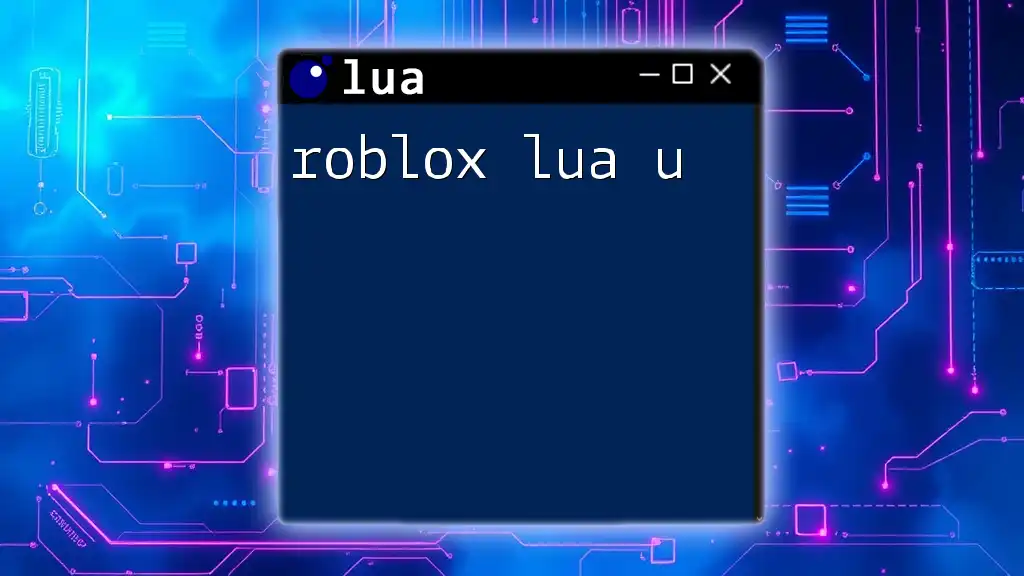
Advanced Lua Scripting for Game Development
Event Handling
Events play a vital role in making games interactive. With events, you can respond to player actions such as clicking a button or touching an object. Here’s an example of handling a player’s input:
local player = game.Players.LocalPlayer
player.CharacterAdded:Connect(function(character)
print(player.Name .. " has spawned in the game!")
end)
This script will notify you whenever a player’s character is added to the game.
Object-Oriented Programming in Lua
Lua supports object-oriented programming, which permits developers to use classes and inheritance in their scripts. This can simplify large projects. Here’s a basic example of creating a class:
local Character = {}
Character.__index = Character
function Character.new(name, health)
local self = setmetatable({}, Character)
self.name = name
self.health = health
return self
end
function Character:takeDamage(amount)
self.health = self.health - amount
end
In this example, you define a `Character` class with a constructor and methods that manipulate its properties.
Working with Roblox Services
Roblox provides various services that streamline game development. Commonly used services include `Players`, `DataStore`, and `ReplicatedStorage`. Here’s an example of utilizing the `Players` service:
local Players = game:GetService("Players")
Players.PlayerAdded:Connect(function(player)
print(player.Name .. " has joined the game.")
end)
This script will print a message in the console whenever a new player joins.
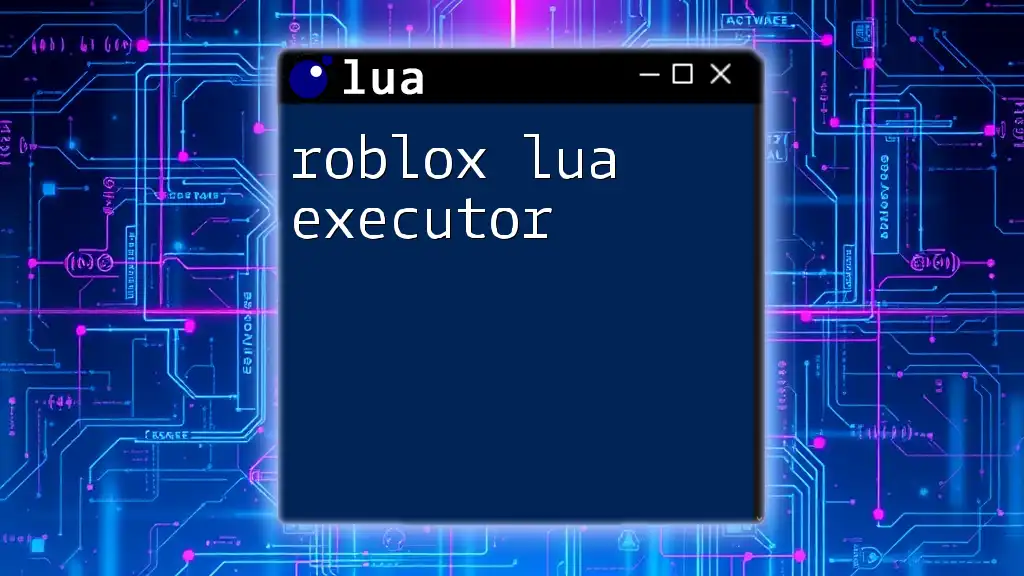
Best Practices for Lua Scripting in Roblox
Writing Clean Code
To ensure your scripts are not only functional but also readable, adhere to clean coding practices. This involves using descriptive naming conventions, keeping functions short and focused, and including comments that clarify complex logic.
Debugging Techniques
Errors are an inevitable part of programming. Understanding common Lua errors, such as syntax or runtime errors, and knowing how to debug them will save time and frustration. Utilize print statements and Roblox's output window to diagnose issues in your scripts.
Performance Optimization
Optimizing your scripts can greatly enhance player experience. Here are some performance tips:
- Minimize the use of loops inside frequently called functions.
- Use local variables instead of global variables whenever possible.
- Avoid using expensive function calls within tight loops.
Here’s an example of how you might optimize a simple script:
local players = game:GetService("Players")
local playerCount = #players:GetPlayers()
for i = 1, playerCount do
local player = players[i]
print(player.Name .. " is in the game!")
end
In this case, the `GetPlayers()` function is used only once, improving efficiency.
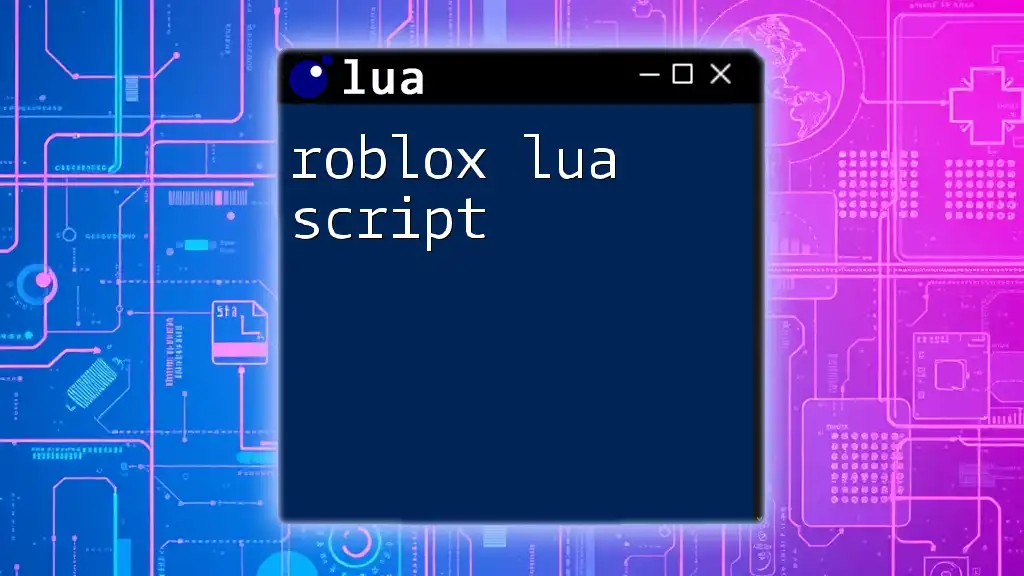
Building Your First Game: A Case Study
Game Concept and Planning
Before jumping into development, it’s essential to plan your game’s concept. Decide on the theme and identify target players. Outlining the core mechanics, goals, and gameplay scope will streamline your development process.
Developing the Game Step-by-Step
Utilize your learned skills through the Roblox Lua course by building the game incrementally:
- Start with basic layout and designs.
- Implement scripts for core gameplay features.
- Begin integrating elements into the game. An example could be spawning items or defining player behavior.
As you advance, ensure to include feedback mechanisms to enhance the gaming experience for your players.
Testing and Feedback
Before officially launching your game, it’s critical to conduct thorough playtesting. Gather feedback from friends and community members. Use this input to refine mechanics, improve user experience, and fix any bugs that may arise during testing.
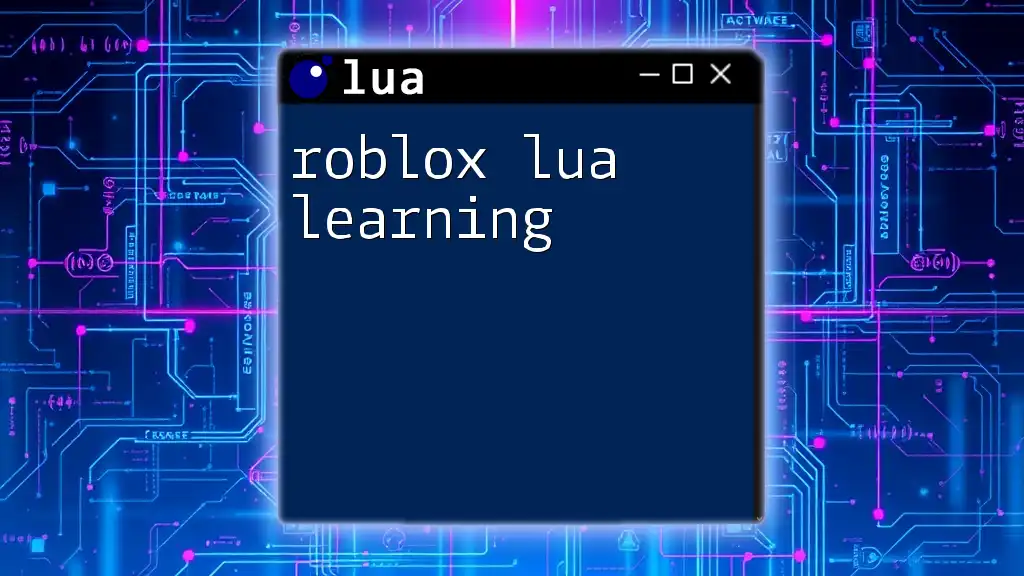
Resources for Continued Learning
Online Communities and Forums
Joining online forums and communities dedicated to Roblox and Lua can be incredibly beneficial. Places like the Roblox DevForum and various Discord servers provide opportunities for networking, support, and sharing resources with other developers.
Books and Tutorials
Numerous online courses, ebooks, and video tutorials are available to help you deepen your understanding of Lua scripting and game development in Roblox. Consider exploring resources that provide exercises and real-world examples.
Staying Updated with Roblox
Roblox frequently updates its platform, introducing new features and tools. Remaining informed through the official Roblox blog, developer events, and social media channels is vital for any serious developer looking to refine their skills and utilize the latest capabilities.
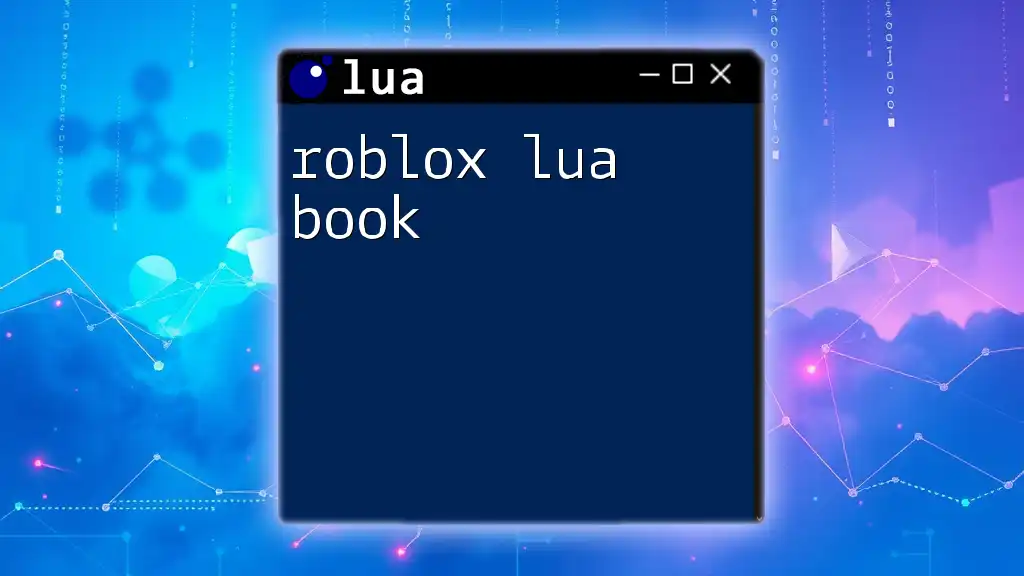
Conclusion
Throughout this Roblox Lua course, you've explored fundamental and advanced scripting concepts that will empower you to create engaging games. Keep practicing and enhancing your skills, as the key to mastery in game development is persistent learning and innovation.
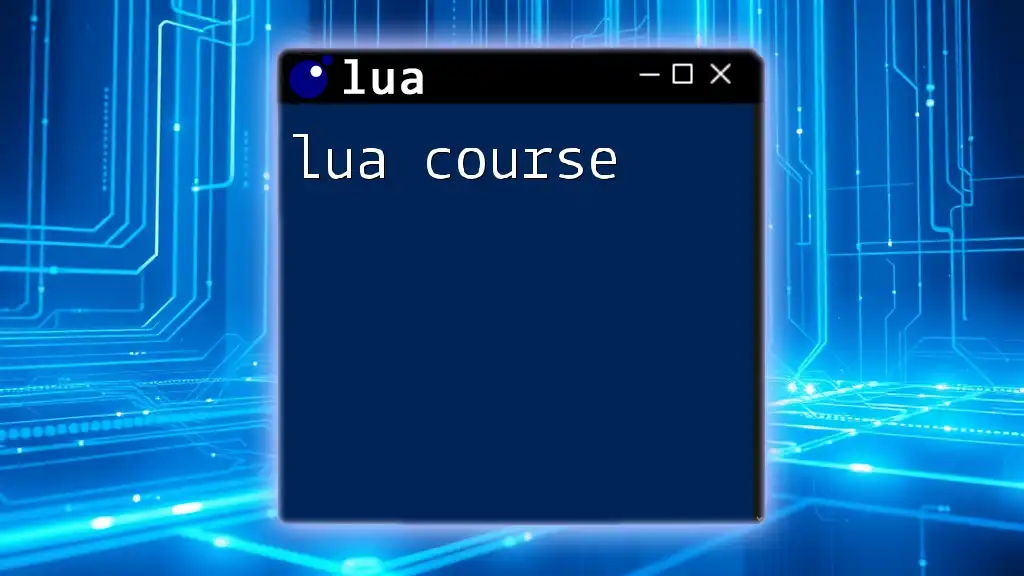
Call to Action
Ready to dive deeper into Roblox game development? Enroll in our comprehensive Roblox Lua course today and take your game development skills to the next level! Visit our website for more information and resources to continue your journey.

